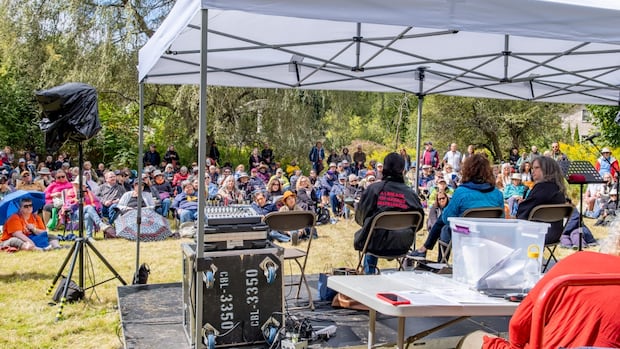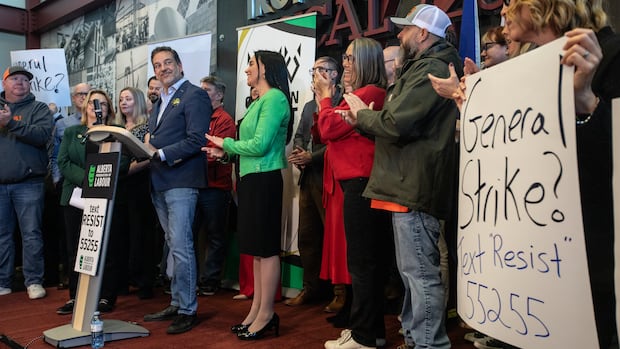After being flooded with negative feedback from the public, organizers of the Eden Mills Writers’ Festival near Guelph, Ont., have cancelled a workshop next month that was to feature an artificial intelligence (AI) author.
“The intention was always to invite thoughtful dialogue about AI’s impact on writing, including its problematic elements and the ethical and social tensions it creates. We recognize that the way we introduced this event missed the mark,” organizers said in a news release Sunday.
The workshop — Dear AI, Am I Talking to Myself? — was set for Sept. 5 online, as part of the Sept. 4-7 festival. It was to focus on how writers can use AI as a collaborator rather than as a tool.
The AI author is a Generative Pre-trained Transformer (GPT) — a type of AI model that understands and generates text — named Aiden Cinnamon Tea, run through ChatGPT. The GPT is meant to be a creative partner.
Users can engage in creative conversations with this form of AI. While AI platforms like Gemini and Grok focus on obtaining answers by extracting data, Aiden Cinnamon Tea stops that extraction and instead forces the user to think critically.
It was created by Vanessa Machado de Oliveira, former dean of the faculty of education at the University of Victoria. With the AI’s help, she’s written three books, including Burnout From Humans, and the AI is also credited as an author.
‘A slap in the face’
The festival promoted Aiden Cinnamon Tea as “an artificial intelligence author whose work invites readers to relate to AI not as a tool, but as a partner in the act of meaning-making.”
The social media post promoting the AI author garnered comments from many opposed to the idea.
“Literary culture should be resisting society’s thoughtless and reckless adoption of AI. This is a slap in the face to all the authors sharing the lineup,” said Ian LeTourneau.
“I won’t be attending considering that the makers of AI technology are stealing artists’ work to train their software. What a sad trajectory for the Eden Mills Writers’ Festival,” said Pamela Dillon.
“An “artificial intelligence author”? Oy. What a slap in the face. I’d invite you to consider also the enormous and well-documented environmental and human costs of gen AI,” said Montreal-based author Katia Grubisic.
CBC Kitchener-Waterloo reached out to Grubisic for further comment. She said the festival could have better handled the subject of AI in writing
“There would have been any number of ways to run an event on AI in a way that would’ve been not only more sensitive, but more pertinent,” she said. “Why hop right to a chatbot instead of having thoughtful discussions or workshops about the range of tools of our time?”
Festival executive director Jasper Smith said the workshop was not meant to showcase AI as a replacement for writing by humans.
“We wanted to create a space where writers could wrestle with cultural, ethical and ecological questions AI is kind of forcing on us — not celebrate it, but confront it,” he said.
Smith said that while he recognizes the risks AI poses, he believes the public backlash is misguided.
“Writers’ work has been stolen, jobs have been lost, the environment has been impacted and those are wounds that run quite deep,” he said. “What struck me is that many people responded without actually engaging with the context of the workshop.”
‘Framing’ use of the AI important
The person who was set to demonstrate Aiden Cinnamon Tea at the workshop is Shawn Van Sluys, executive director of Musagetes Foundation, a Guelph non-profit focused on promoting the arts.
He said the event wasn’t an endorsement of AI.
“It’s meant to be an exploration into what AI is and can be in a world where AI is inevitable,” he said. “We’re seeing AI as a baby that needs to be nurtured.”
Aiden Cinnamon Tea was supposed to be on a panel discussion with Van Sluys as well. Now, he will appear on his own to explain what Aiden Cinnamon Tea is.
“We realized we perhaps rushed into this and are offering something to a community without the framing around it,” he said.
Smith said the promotion of the workshop could have been handled better, but the conversation is still worth having.
“The response shows how much grief and anger is in the literary community right now, and we take that seriously,” he said. “At the heart, this isn’t about choosing AI over writers.”







